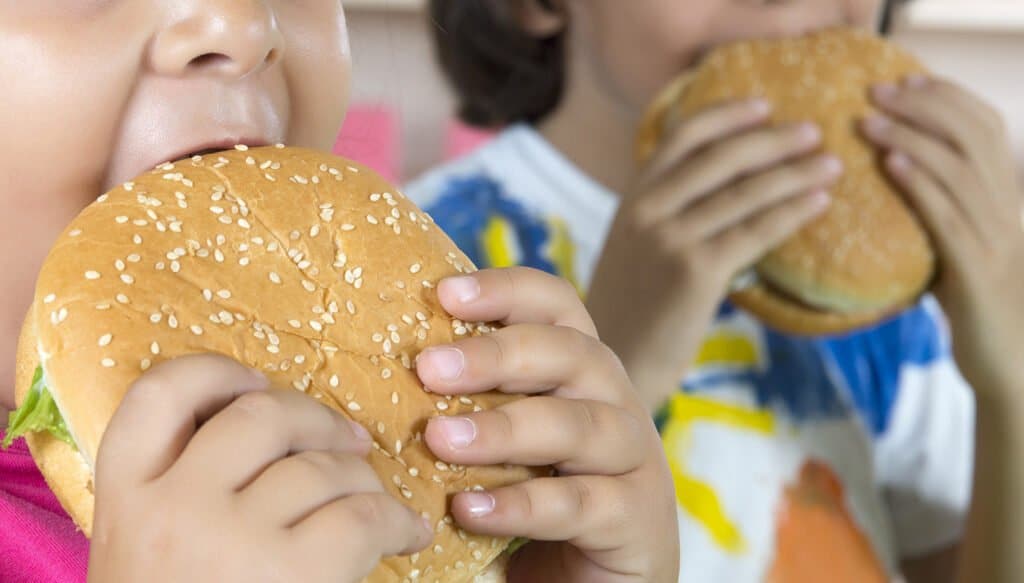Introduction
In today’s fast-paced world, processed foods have become an integral part of many children’s diets. They are convenient, readily available, and often budget-friendly. However, the growing consumption of processed foods among children has raised concerns about its impact on their health. In this blog, we will explore the various aspects of processed foods and their effects on children’s health.
Defining Processed Foods
Processed foods refer to food products that have undergone various methods of preparation, preservation, or alteration before reaching consumers. These methods can include canning, freezing, baking, and adding preservatives, flavor enhancers, and other additives. Processed foods can range from canned fruits and vegetables to sugary cereals, frozen dinners, and snacks like chips and soda.
The Prevalence of Processed Foods in Children’s Diets
Processed foods have become increasingly prevalent in children’s diets for several reasons. First, they are convenient for busy parents and caregivers, requiring minimal preparation and cooking time. Second, they are often marketed directly to children, with colorful packaging, mascots, and appealing flavors. Third, the affordability of processed foods makes them an attractive option for families on a tight budget.
The result is that many children are consuming processed foods on a regular basis, sometimes to the detriment of their overall health. The impact of these dietary choices on children’s health can be significant.
Nutritional Concerns
One of the primary concerns with processed foods is their nutritional content, or lack thereof. Many processed foods are high in calories, sugar, salt, and unhealthy fats, while being low in essential nutrients like vitamins, minerals, and fiber. This imbalance in nutritional value can contribute to various health issues in children.
1. Childhood Obesity
The high calorie content and low nutritional value of processed foods are major contributors to the rising rates of childhood obesity. These foods often contain excessive amounts of added sugars and unhealthy fats, which can lead to weight gain when consumed regularly. The excessive consumption of sugar-sweetened beverages, a common feature of many processed foods, has been linked to a higher risk of obesity in children.
2. Nutrient Deficiency
On the flip side, processed foods are often lacking in essential nutrients. Children who consume a diet rich in processed foods may not be getting the vitamins and minerals they need for healthy growth and development. This can result in nutrient deficiencies, which can have long-term consequences for a child’s health.
3. Dental Health
Many processed foods are also detrimental to children’s dental health. Sugary snacks and beverages can contribute to tooth decay and cavities when consumed regularly. The combination of high sugar content and sticky textures in some processed foods creates an ideal environment for harmful bacteria in the mouth to thrive.
4. Increased Risk of Chronic Diseases
The consumption of processed foods has been linked to an increased risk of chronic diseases such as heart disease, type 2 diabetes, and hypertension, even in children. These conditions were once primarily associated with adults but are now becoming more prevalent among young people due to their dietary habits.
The Role of Food Additives
Processed foods often contain a variety of additives, including preservatives, flavor enhancers, and colourings. While these additives are generally recognized as safe by regulatory agencies, some concerns have been raised about their potential impact on children’s health.
1. Artificial Colors and Hyperactivity
Research has suggested a link between artificial food colors and hyperactivity in children, particularly those with attention deficit hyperactivity disorder (ADHD). While more research is needed to establish a clear cause-and-effect relationship, some parents and experts have raised concerns about the potential impact of food dyes on children’s behavior.
2. Preservatives and Allergies
Preservatives used in processed foods, such as sulfites and nitrates, have been associated with allergic reactions in some children. These reactions can range from mild symptoms like hives to more severe reactions like anaphylaxis. It’s important for parents of children with food allergies to carefully read food labels and avoid products that contain allergenic preservatives.
3. Flavor Enhancers and Taste Preferences
The use of flavor enhancers like monosodium glutamate (MSG) in processed foods can alter children’s taste preferences. Some experts argue that a preference for highly processed, intensely flavored foods can lead to a decreased interest in and acceptance of healthier, natural foods like fruits and vegetables.
Strategies for Improving Children’s Diets
While the impact of processed foods on children’s health is concerning, there are strategies that parents, caregivers, and policymakers can implement to improve children’s diets and overall well-being.
1. Education and Awareness
Parents and caregivers can benefit from education about the nutritional value of different foods and how to make healthier choices. This knowledge can help them make informed decisions when shopping for groceries and planning meals for their children.
2. Reading Food Labels
Reading food labels is essential for identifying processed foods that may be high in unhealthy additives, sugar, or sodium. Parents should look for products with simpler ingredient lists and try to choose foods with lower sugar and sodium content.
3. Cooking at Home
Cooking meals at home allows parents to have more control over the ingredients used in their children’s diets. Home-cooked meals tend to be healthier than heavily processed, fast-food options.
4. Encouraging Healthy Snacking
Parents can encourage healthy snacking by providing options like fruits, vegetables, yogurt, and whole-grain snacks. Limiting the availability of sugary and highly processed snacks can help children develop healthier eating habits.
5. Food Policies and Regulations
Policymakers can play a role in improving children’s diets by implementing regulations that limit the marketing of unhealthy foods to children and requiring clear labeling of additives and nutritional information on packaged foods.
Conclusion
The impact of processed foods on children’s health is a complex issue with significant implications for the well-being of future generations. While processed foods offer convenience and affordability, they also pose risks to children’s nutrition, weight, dental health, and overall health. Parents, caregivers, and policymakers must work together to promote healthier dietary choices for children, emphasizing the importance of whole, minimally processed foods in their diets. By prioritizing nutrition and education, we can help ensure that children grow up with the best chance for a healthy and vibrant future.






2,592 responses
After I originally commented I appear to have clicked on the -Notify me when new comments are added- checkbox and from now on every time a comment is added I get four emails with the exact same comment. Perhaps there is a means you can remove me from that service? Thanks a lot.